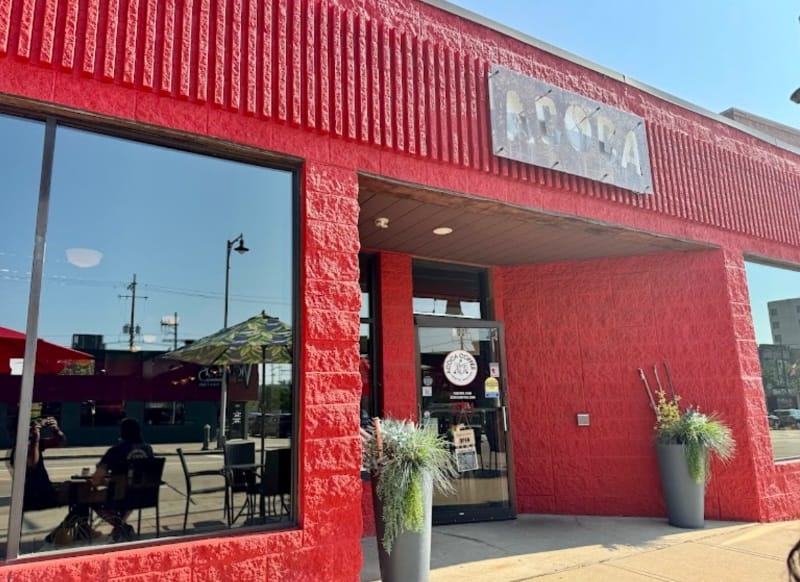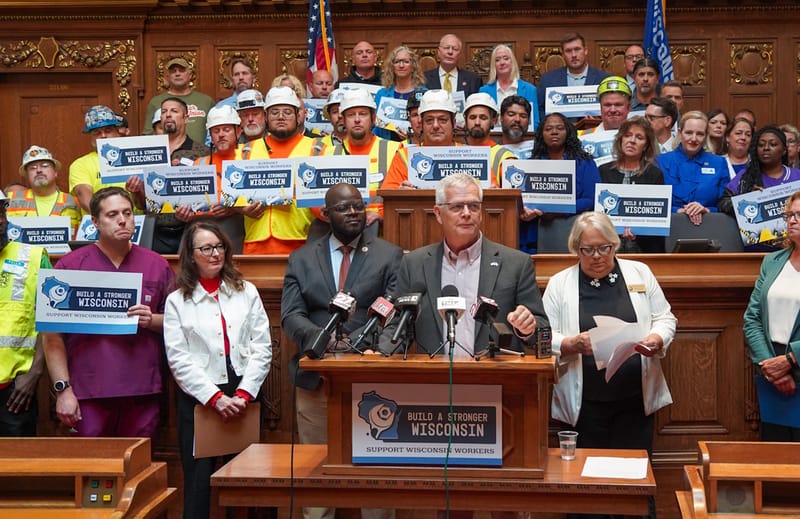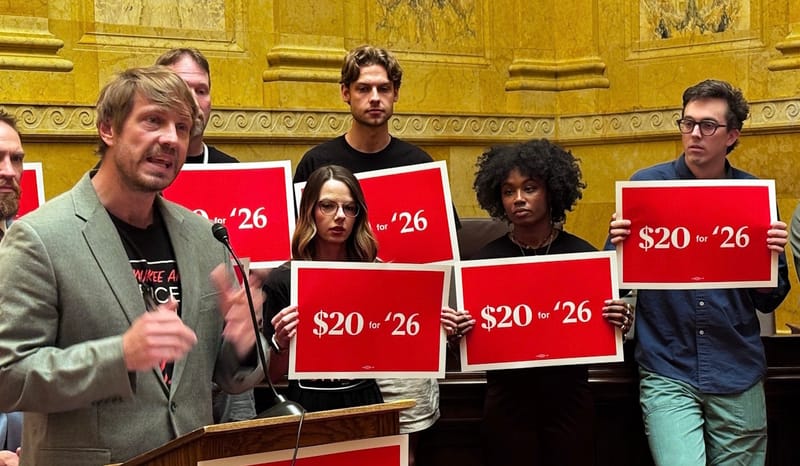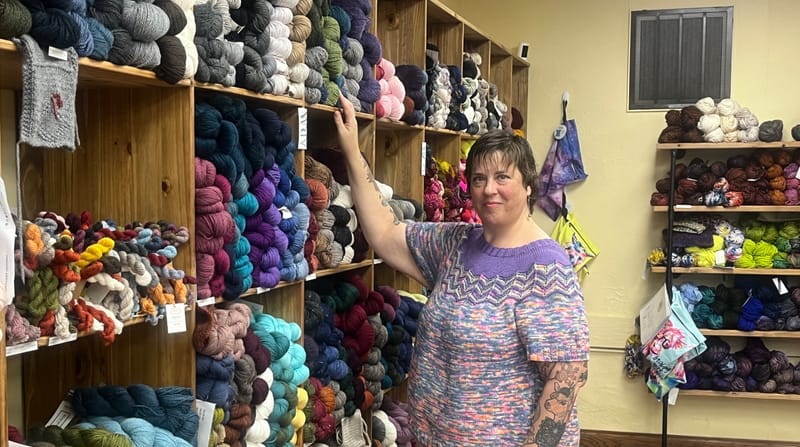ACOCA owner feels uncertainty with Trump's shaky tariff policy
Tariffs on everything from coffee to oat milk to blueberries and avocados impact Acoca’s bottom line. Bill Wetzel says there’s only so much he can do to plan for such things, especially given all the uncertainty.
Bill Wetzel recognizes that a good cup of coffee is an item of privilege, something that might be high on the list of things people would be willing to forgo in a budget crunch.
But he also sees his cafe as something more than a business selling a product. He views it as a gathering place, a setting for people to emerge from their silos, put down their phones (or at least set them beside their coffee cup) and engage with their fellow citizens.
The Greeks had the agora. Appleton has ACOCA, an inviting, deep but narrow, space that has been serving coffee – and since 2000, food – at the corner of College and Walnut for more than a quarter century.
“What we’re trying to bring downtown is a welcoming environment for all and a positive experience,” says Wetzel, who reopened ACOCA in December of 2020 as a cafe. “We’re very much people-centric. We want to get back to, you know, the days when coffee houses were first established in the 1500s, where people go to talk and communicate and share ideas with civil discourse.
“And I would like to see us get back to some of that.”
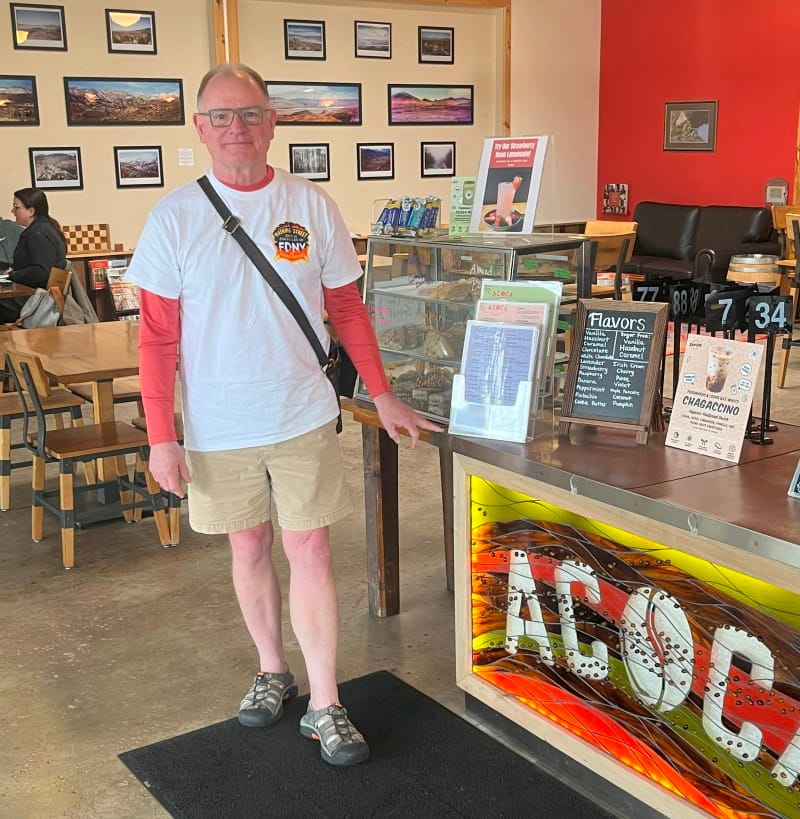
Part of what makes ACOCA such an inviting atmosphere is the building itself – open and sunlit as you walk through the front door but narrowing into cozier nooks farther in. The walls are painted warm colors, from beige to blood orange and adorned with art and photographs. A customer can choose from among blond wood tables or leather couches and chairs.
Its staff is uniformly polite, friendly and attentive, the food unique and delicious and the coffee rich.
Wetzel operates under another ethos as well: inclusivity. All are welcome, he says, noting that we all lead challenging lives no matter our backgrounds or our lifestyles and he hopes ACOCA offers a respite from all that.
“We want people leaving here feeling a little better than when they walk through the door,” he says. “You know, we all have economic challenges and financial challenges and relationship challenges. We all have healthcare concerns. All of that weighs on us. We want to provide our customers a little pop of positivity.”
‘People will have to be making decisions’
Wetzel, who was in the flexible packaging business most of his life, had a dream of getting into the food hospitality industry and when his corporate career began to wind down he bought the business from his partners and then bought the building.
In 2020, Wetzel opened up a kitchen at ACOCA and has been serving food ever since. It’s a popular place with a great location, but between the pandemic, climate change and, now, President Trump’s on-again, off-again tariff wars, there have been a few wobbles. Business, he says, has never picked up to what it was pre-pandemic despite the addition of breakfast and lunch fare.
He says supply chain issues coming out of Covid, inflation and, more ominously, recent poor growing seasons stemming from global warming, has nearly doubled the cost of his wholesale coffee, which comes from a distributor in Minnesota. Brazil and Vietnam are two of the largest producers of coffee and when they have tough growing seasons, the whole market is affected.
“Coffee is as high as it’s ever been,” Wetzel says. “And that’s without considering tariffs. So we’re already experiencing extraordinarily high costs. And this isn’t a high-margin business to begin with.”
ACOCA has absorbed some of those higher costs in the form of even tinier margins and raised prices incrementally to further help offset them. But coffee is a product that, in economic terms, has elastic demand, meaning that significant price increases can lead to significantly lower demand.
“We don’t want our increases to come as a shock to the consumer,” he says. “But as I said earlier, it is a treat to come in here, whether it is for our food or our coffee or some of our fun drinks. These are not bare necessities. So we’re thankful that people still find it in their budget to come in.
“But if the tariffs continue to push through to the consumer level, then people will have to be making decisions and I feel like sometimes we won’t make it on that decision tree.”
Nearly three weeks ago, President Trump announced with no warning that he was slapping tariffs on virtually all of our trading partners, including Mexico and Canada. Those countries never flinched, placing reciprocal tariffs on US goods.
Trump called off some of the tariffs, then raised them even higher on China, then suggested the retracted tariffs could be back in place within three weeks.
‘Who likes uncertainty?’
The confusion and indecision sent the Dow Jones into free fall. It has lost nearly six percent of its value since the trade wars began. Tariffs on everything from coffee to oat milk to blueberries and avocados impact ACOCA’s bottom line. Wetzel says there’s only so much he can do to plan for such things, especially given all the uncertainty.
“We have some ideas on certain food items that we can maybe sub out,” he explains. “So that it might not be avocado toast. It might be sweet potato toast, those kinds of things. Avocados could become crazy expensive. I’m sure we’ll find other sources of oat milk (which comes from Canada) if we have to. But if everyone starts buying from a US supplier that’s going to drive up demand and cost. Will it be as high as with the tariffs coming from Canada? It’s hard to say.
“And then it will be up to the consumer whether they want to put their hard-earned money toward a latte or just a plain coffee or buy coffee beans from here and make it at home or just stay at home and drink it.”
Wetzel reiterates that he understands all of this is a privilege for people who would be facing such decisions, that this isn’t life and death. But he struggles to make sense of what the administration is doing and it frustrates him that businesses like his – and his customers – would be on the hook for it.
He says it’s all about how it’s approached. He scratches his head at the notion that American manufacturers can just suddenly decide to start building factories when such and investment in time and money requires planning.
“I’m all for buying American in America,” he says. “But factories aren’t going to go up in a few months. Why not say, here’s what we intend to do with tariffs so you could plan. But this bull-in-a-china-shop approach just sends shock waves through the global marketplace. It’s slash and burn and then it’s on and it’s off. Who likes uncertainty?
To live day in and day out with it, certainly businesses even as small as ours don’t like what’s happening because it’s very difficult to plan and manage going forward without really understanding what's going to happen next.”
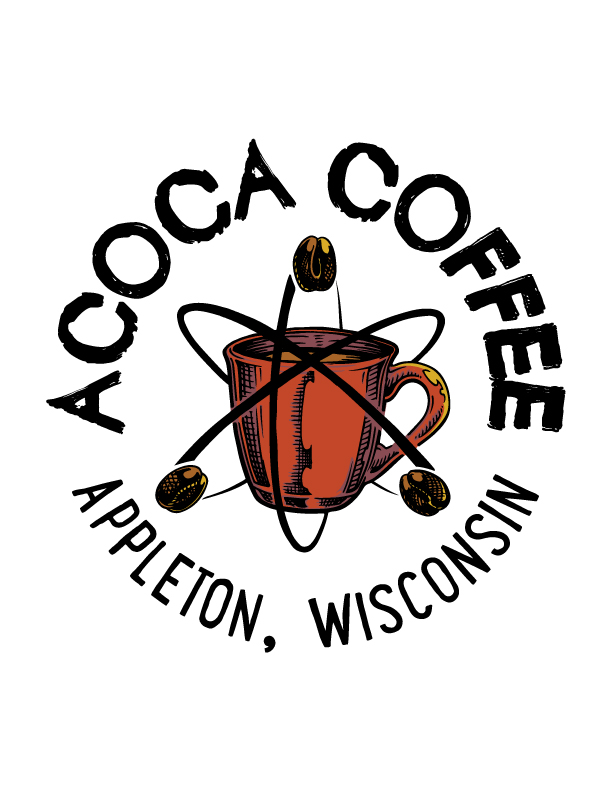
ACOCA owner feels uncertainty with Trump's shaky tariff policy © 2025 by Kelly Fenton is licensed under CC BY-NC-ND 4.0


